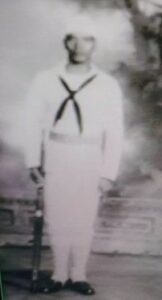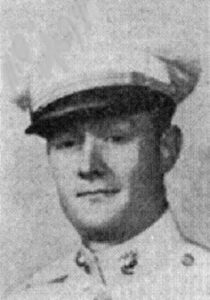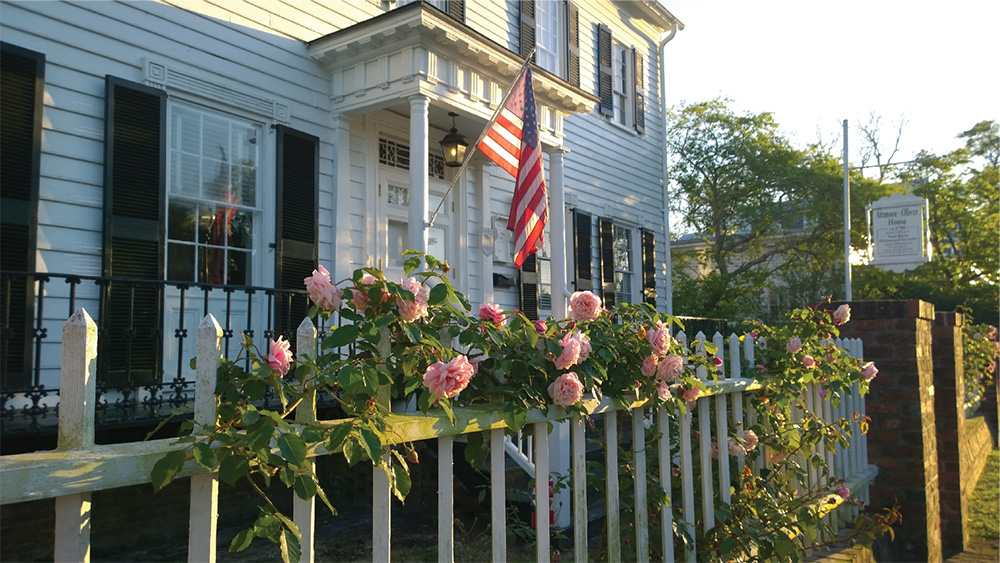A Day of Infamy
NBHS Historian/Claudia Houston
 On December 7, 1941, two young men from Craven County died after a surprise attack by the Japanese at Pearl Harbor, Hawaii, propelling the United States into WWII. President Franklin Roosevelt, in an address to Congress and the nation, announced, “Yesterday, December 7, 1941-a date which will live in infamy, the United States of America was suddenly and deliberately attacked by the naval and air forces of the Empire of Japan.” Congress then authorized a Declaration of War.
On December 7, 1941, two young men from Craven County died after a surprise attack by the Japanese at Pearl Harbor, Hawaii, propelling the United States into WWII. President Franklin Roosevelt, in an address to Congress and the nation, announced, “Yesterday, December 7, 1941-a date which will live in infamy, the United States of America was suddenly and deliberately attacked by the naval and air forces of the Empire of Japan.” Congress then authorized a Declaration of War.

Moses Anderson Allen, a young Black man, resided in the rural town of Cove City in Craven County with his parents, Samuel Allen and Addie Benders, and six brothers. Moses was the fifth of seven boys and was born on 1 July 1920. His parents were born in North Carolina and married in Craven County in 1907. Mr. Allen was a farm laborer. Moses decided to join the Navy and enlisted on November 27, 1939, in Raleigh at the age of nineteen. He reported to boot camp and then to the Naval training station in Norfolk, VA. Moses was sent to San Diego and boarded the USS California on 16 February 1940. He was a Petty Officer, 1st Class, and Mess Attendant on board. On 7 December 1941, the USS California was moored near Ford Island, preparing for an inspection. The ship was hit by two torpedoes and several bombs, which caused severe flooding and fires. The boat sank to the bottom of the harbor three days later. Moses Allen was one of ninety-eight men killed in action on the USS California and became the first casualty of WWII from Craven County. He was awarded a Purple Heart and is buried at New Bern National Cemetery.
Another young man from Craven County became the first casualty of WWII from New Bern. Robert J. Conderman, nicknamed “Strawberry” by his mother due to his red hair, was born and resided in New York until the family moved to Washington, DC, when he was eleven. His father, Fred Conderman, was a postal inspector for the US government and was later appointed assistant postmaster in New Bern, where the family moved in the 1930s. After graduating from New Bern High School, Robert attended the University of North Carolina, receiving a bachelor’s degree in commerce. Before graduation, his mother, Bertha, age forty-three, suffered from a cerebral aneurysm and died on May 7, 1939. Her body was sent home for burial in Hornell, NY. After graduation, Robert became an aviation cadet at Pensacola, FL. He married Julia Bishop Smallwood in New Bern on September 21, 1940, at Christ Episcopal Church. Robert was stationed in San Diego and Hawaii, where the couple resided while he finished flight training. Robert was soon transferred to Wake Island while Julia remained in Hawaii.

Conderman was part of a famous Marine Fighting Squadron while on Wake Island. On December 8, 1941, the garrison at Wake Island received word that the Japanese had attacked Pearl Harbor. Before noon, the first Japanese planes were spotted, and as the air raid siren sounded, Robert ran to his 4F4 fighter. He was cut down by strafing action from a Japanese aircraft. He called for help but ordered the person assisting him to attend to another wounded Marine. Conderman died just hours later at the age of twenty-three. It was December 8th on Wake Island, but Wake is west of the international date line, which made it December 7th in Hawaii and New Bern. 2nd Lieutenant Robert Conderman received the Purple Heart and is buried at the National Memorial Cemetery, also known as the Punchbowl, in Honolulu, Hawaii.
Moses Allen and Robert Conderman were from diverse Craven County backgrounds, but their names are inscribed together on the WWII Memorial at the old County Courthouse grounds.
May we always remember their names and honor their sacrifice.


